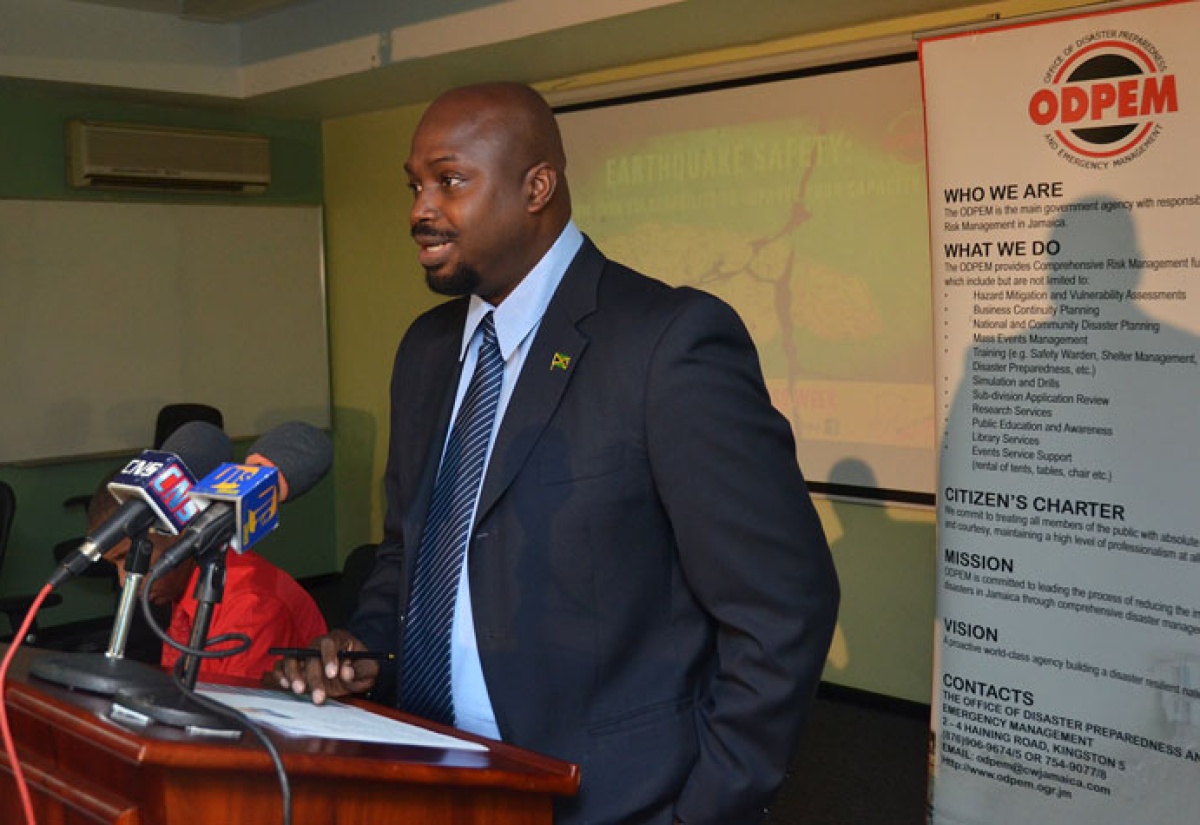National Fire Management Plan Sound – ODPEM
By: , April 29, 2014The Key Point:
The Facts
- Mr. Thompson argues that compared to other countries, Jamaica’s national response system and protocol has been tested and proven to be sound and of the highest standard.
- The plan is reviewed each year and includes a national simulation programme or a desktop simulation, which usually takes the form of a workshop.
The Full Story
Acting Director General of the Office of Disaster Preparedness and Emergency Management (ODPEM), Richard Thompson, has hailed Jamaica’s Fire Management Plan as “a very effective and coordinated response mechanism”.
In an interview with JIS News, Mr. Thompson argues that compared to other countries, Jamaica’s national response system and protocol has been tested and proven to be sound and of the highest standard.
The National Fire Management Plan, which is a sub-component of the National Emergency Plan, defines a programme or approach to managing major fires. It outlines the intended action to be taken by the Government in preparedness, mitigation, response, and recovery to a major fire.
The plan is reviewed each year and includes a national simulation programme or a desktop simulation, which usually takes the form of a workshop.
“The national response mechanism in place to deal with a major fire is sound and has been very effectively managed by the ODPEM,” Mr. Thompson reiterates, adding that the plan has been used to guide the response to major fires, such as the most recent, at the Riverton City landfill in St. Andrew.
Once a major fire is reported, the plan is activated by the ODPEM in consultation with the Commissioner of the Jamaica Fire Brigade. After the plan is activated, the National Emergency Operations Centre is established at the ODPEM and all the relevant ministries, agencies and parish disaster committees activate their emergency operation centres.
He adds that as the country becomes more developed, further advancements are made in the response systems, and preparing the country to deal with these developments.
Pointing to the prospects of the Logistics Hub initiative, Mr. Thompson says there are emergency procedures that will emerge with its development.
“You’re now talking about major ports and industries around ports and the best way to manage that…preparation for these developments therefore, will come from planning and assessing our readiness for the possibility of a major industrial fire,” he explains.
He reasons that continuous planning and assessment of the plan, allows for the gaps in the system to be identified.
“One dollar spent on prevention and preparedness, saves seven dollars on response and recovery,” Mr. Thompson argues.
Highlighting the benefits, he notes that a sound fire management plan is a great tool to attract investors to the country, and to lobby other donors.
“Investors want to know that their investments are secure, and two drivers of that are national security and risk management,” Mr. Thompson further highlights.
The Acting Director General informs that as the ODPEM carries out its mandate to ensure a safer society, special attention is being given to improving risk management in terms of policies, operations, plans, and feedback from persons utilising the management practice.
Overall, Jamaica’s economic loss from natural disasters is reported to be approximately 2.6 per cent of Gross Domestic Product (GDP). However Mr. Thompson says loss from fires is not accounted for in this figure.
He explains that significant economic loss is borne by small and medium-sized businesses which suffer damage from fires and often slowly recover from the setback. This, he adds, puts a strain on the resources of the state and results in slower response times.
Data from the ODPEM shows that during the past 25 years, Jamaica has been the most affected country in the region for major events and emergencies. “Given that we have the largest urban spread in the region, we have the most fire calls and responses as well,” Mr. Thompson says.
In 2013 Jamaica recorded a total of 15, 281 fire calls, a four per cent decrease compared to the figure recorded in 2012.
As it relates to fire tips, businesses and homeowners can prepare and practice a fire plan to ensure the safety of their assets and lives by devising escape routes; establishing alternative routes out of buildings; training every occupant of their households, or buildings, on a regular basis; and carrying out daytime and nighttime fire drills.


